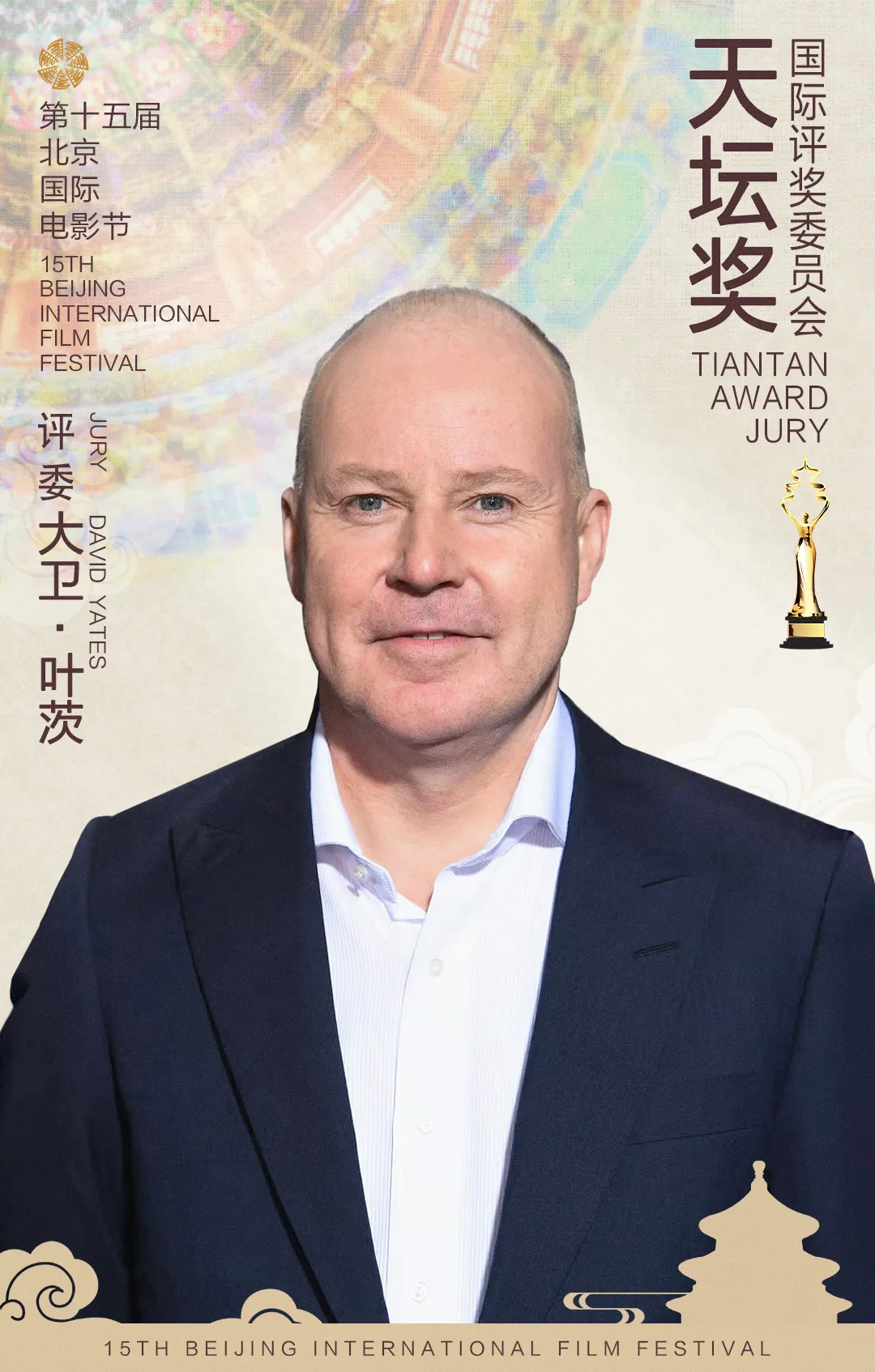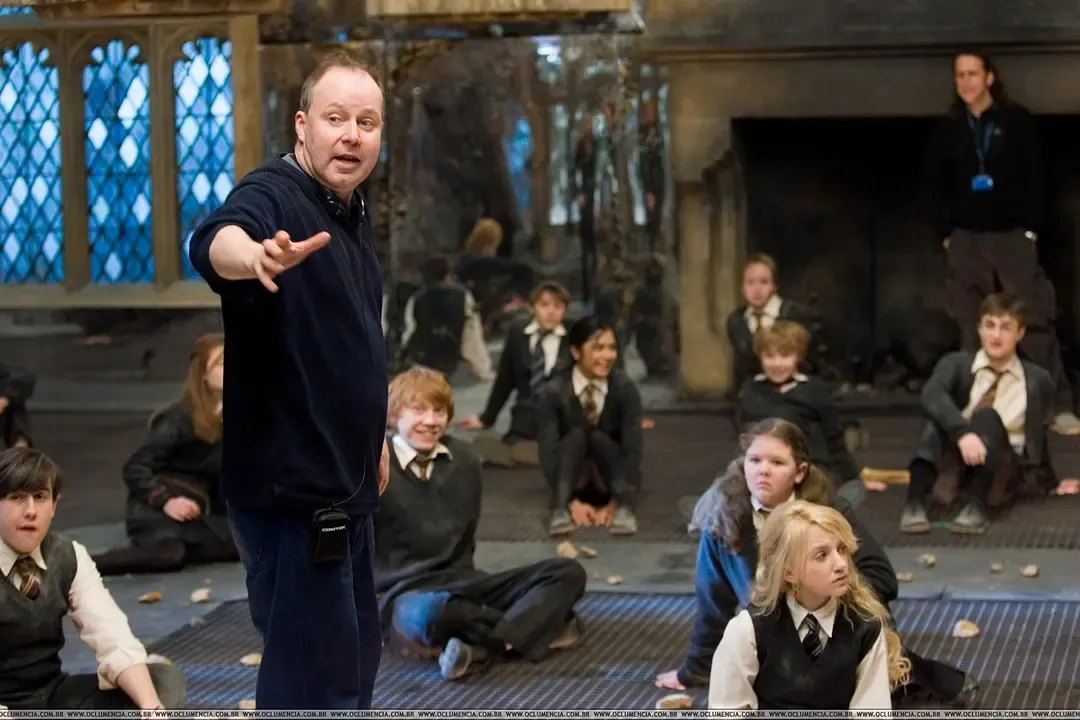Tiantan Award
David Yates: A Dream Weaver of Cinema and a Guide to the Magical World
The international jury lineup for the 15th Beijing International Film Festival (BJIFF)'s Tiantan Award has welcomed another heavyweight - renowned British director David Yates. Best known for creating box office miracles with the Harry Potter and Fantastic Beasts and Where to Find Them series, Yates will bring his global vision of commercial film-making and his nuanced humanistic insight to infuse the “Tiantan Award” with fresh inspiration and vitality.

David Yates, Jury member of the 15th BJIFF “Tiantan Award”
Since first chairing the jury of the Competition Section at the BJIFF in 2011, the Tiantan Award has remained anchored in professionalism while embracing diversity, inviting masters from various cultural backgrounds and creative domains to construct a prestigious panel of judges. Now, with the participation of David Yates, this cinematic feast gains a new layer where fantasy and grandeur intertwine.
Regarding “dream weavers” in contemporary commercial cinema, David Yates's name is undoubtedly etched at the top. As of 2024, his films have grossed a cumulative $6.34 billion globally, placing him seventh on the all-time highest-grossing directors list. However, the starting point of the career of this director, who is called the “c” by movie fans, has nothing to do with magic wands or spells.
In the 1990s, Yates made his mark in British film and television by directing short films and TV dramas. His early works, such as Sex Traffic (2003), used stark cinematography to explore the struggles of marginalized groups, demonstrating his keen sensitivity to the subtleties of human nature. Notably, State of Play (2003) earned him the Directors Guild of Great Britain Award for Outstanding Directorial Achievement, while The Girl in the Café received a Primetime Emmy Award nomination for Outstanding Directing for a Miniseries, Movie or a Dramatic Special, cementing his distinctive voice in the realm of realism.
A pivotal turning point came in 2007 when Warner Bros. entrusted Yates with the directorial helm of Harry Potter and the Order of the Phoenix. Skepticism was not in short supply - could a director renowned for his command of social realism navigate the grandeur and spectacle of the magical realm? However, Yates wrote a legend in film history with four Harry Potter and three Fantastic Beasts and Where to Find Them series.

On the Set of Harry Potter and the Order of the Phoenix
Through Yates's lens, magic never devolved into a mere spectacle of visual effects. He is well aware of the golden rule of commercial blockbusters - that only by fusing visual marvels with emotional depth can a filmmaker truly resonate with audiences across the globe.
In Harry Potter and the Deathly Hallows: Part 2, Yates employed a near-classical compositional style and restrained emotional cadence, elevating the themes of growth, sacrifice, and redemption to a philosophical plane. The film eventually became the series' peak with a box office of $1.342 billion, and pushed the “Harry Potter” IP to become a series of films with a global box office of over $10 billion.
With the Fantastic Beasts and Where to Find Them series, Yates pushed the boundaries of the magical universe even further. The steampunk aesthetics of New York's streets, the Baroque domes of the Ministry of Magic in Paris, and the Eastern imagery of the Chinese Zouwu - all these cultural symbols from diverse regions were intricately woven into the narrative of magic, transforming the fantasy genre film into a vessel for cross-civilizational dialogue. What is even more remarkable is that Yates always placed “humanity” at the core of his storytelling: the resonant solitude between Newt Scamander and Credence Barebone, and the tangled web of love and conflict between Dumbledore and Grindelwald - these Shakespearean laments on the human condition flowed through the gaps between wand duels.

A Still from Fantastic Beasts and Where to Find Them
From the theatrical stages of London's West End to the sprawling studios of Hollywood, from the sharp inquiries of independent films to the global frenzy of commercial blockbusters, David Yates has, over the course of more than 30 years, demonstrated that the so-called "balance between commerce and art" is, at its core, a perpetual reverence for the intellect and emotions of the audience. As this guide to the magical realm takes his seat at the Tiantan Award Jury, we may yet witness a new revelation - beyond the allure of box office figures and the glimmer of accolades, the true magic of cinema lies in its timeless ability to allow audiences from different cultural backgrounds to see their own reflections in the same beam of light.
